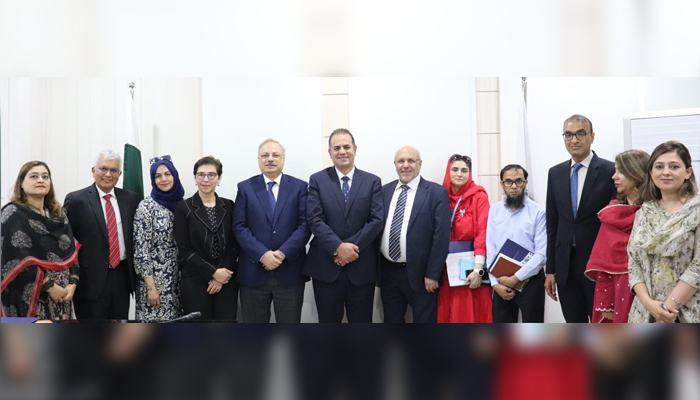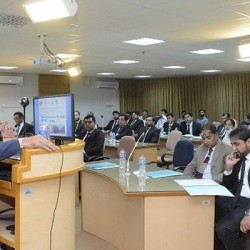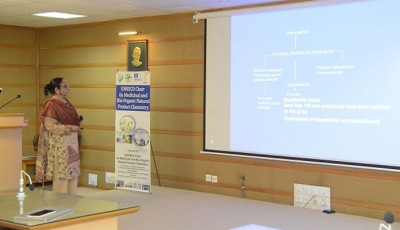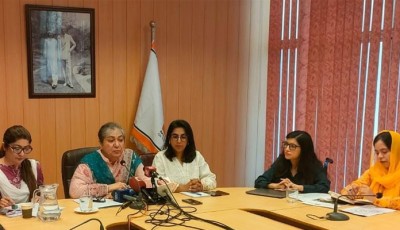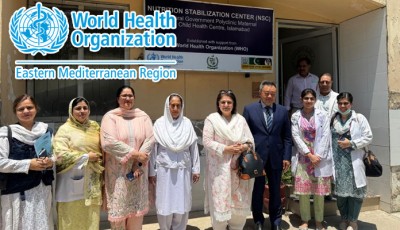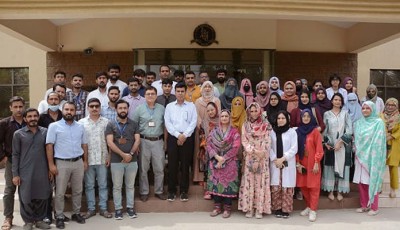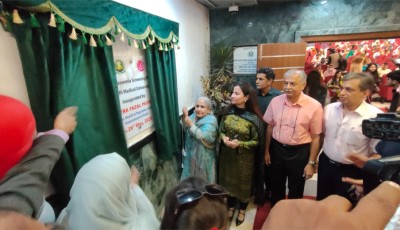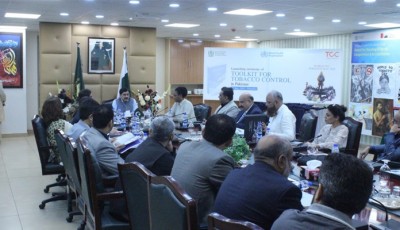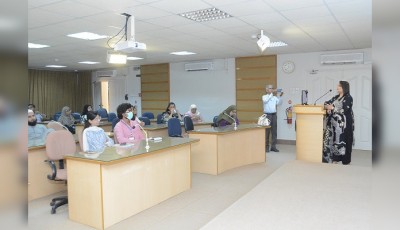Islamabad: A high-level delegation from the World Health Organization (WHO) visited the President of the Pakistan Medical and Dental Council (PM&DC) today (Monday), aiming to deepen collaboration and align medical and public health education with Pakistan's evolving Primary Health Care (PHC) needs.
During the meeting, both sides held in-depth discussions on revising medical and public health curricula, establishing and strengthening PHC centers, and ensuring that future healthcare professionals are better equipped to deliver comprehensive, community-centered care.
The WHO delegation emphasized the critical need for a skilled health workforce to effectively address emerging challenges, including non-communicable diseases, maternal and child health issues, mental health needs, and health emergencies.

Welcoming the WHO representatives, PM&DC President Prof. Dr. Rizwan Taj reiterated the Council's commitment to advancing a responsive, equitable, and sustainable healthcare system through educational reforms.
"Our shared goal is to create a responsive, equitable, and sustainable healthcare system by strengthening the foundation of medical education," said Dr. Taj. "We value WHO’s technical expertise and continued support in this vital endeavor."
The WHO delegation included:
- Mr. Ravaghi Hamid (Regional Advisor)
- Mr. Mataria Awad (Director)
- Ms. Gedik Fetheya Gulin (Coordinator)
- Dr. Mohsin Raza (Consultant, Health Financing)
- Mr. Syed Shamsuzzoha Babar (Unit Head)
- Dr. Naveed Asghar (National Professional Officer, Health Systems)
- Ms. Tahira Ali (Community Engagement Officer)
- Dr. Samia Latif (Consultant, Communicable Disease Control)
Responding to various queries, Dr. Taj highlighted PM&DC’s initiatives, including the directive to all affiliated medical and dental colleges to establish outreach centers at their teaching hospitals or partner with existing Basic Health Units (BHUs) and Rural Health Centers (RHCs). These efforts aim to enhance students' practical training, promote community health, and strengthen public health education.
He stressed the urgent need to provide accessible primary healthcare to populations in remote and underserved areas, reducing their dependency on major urban centers for basic services.
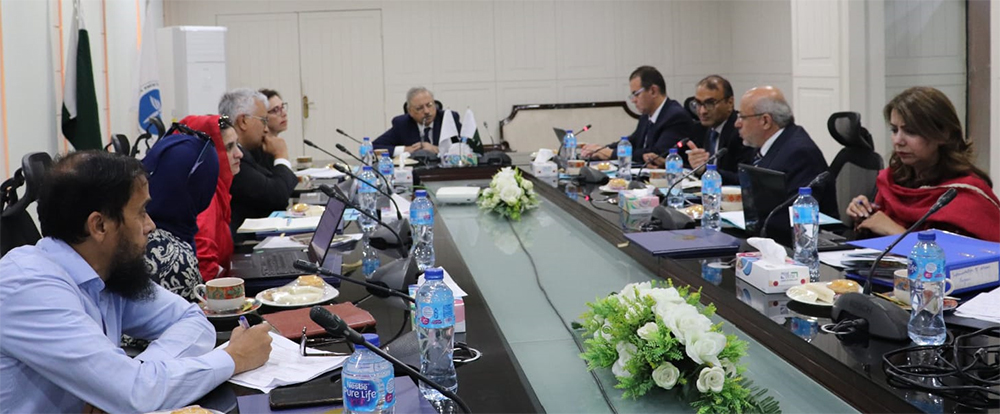
Dr. Taj further informed that Primary Health Care concepts have already been integrated into the undergraduate medical curriculum, with plans underway to strengthen Public Health and Family Medicine components at the postgraduate level.
Key initiatives shared by PM&DC include:
Introduction of a 1,700-hour curriculum for medical and allied health sciences education.
Mandatory inclusion of 75 hours dedicated to Family Medicine.
Issuance of 123 letters to affiliated colleges to implement Family and Primary Health Care modules, with 44 colleges responding positively so far.
Future reforms focusing on PHC leadership skills, interdisciplinary collaboration, medical ethics, and communication training.
Dr. Taj also highlighted that PM&DC's Academic Board, comprising leading experts and stakeholders, is actively working to facilitate healthcare access and improve service quality across Pakistan.
In conclusion, Dr. Taj shared that PM&DC has made significant strides in medical education reforms over the past two years and is preparing to launch Continuing Professional Development (CPD) and Continuing Medical Education (CME) programs. Participation in these programs will be linked to revalidation processes for medical practitioners, ensuring they continuously upgrade their knowledge and competencies in line with global healthcare standards.
